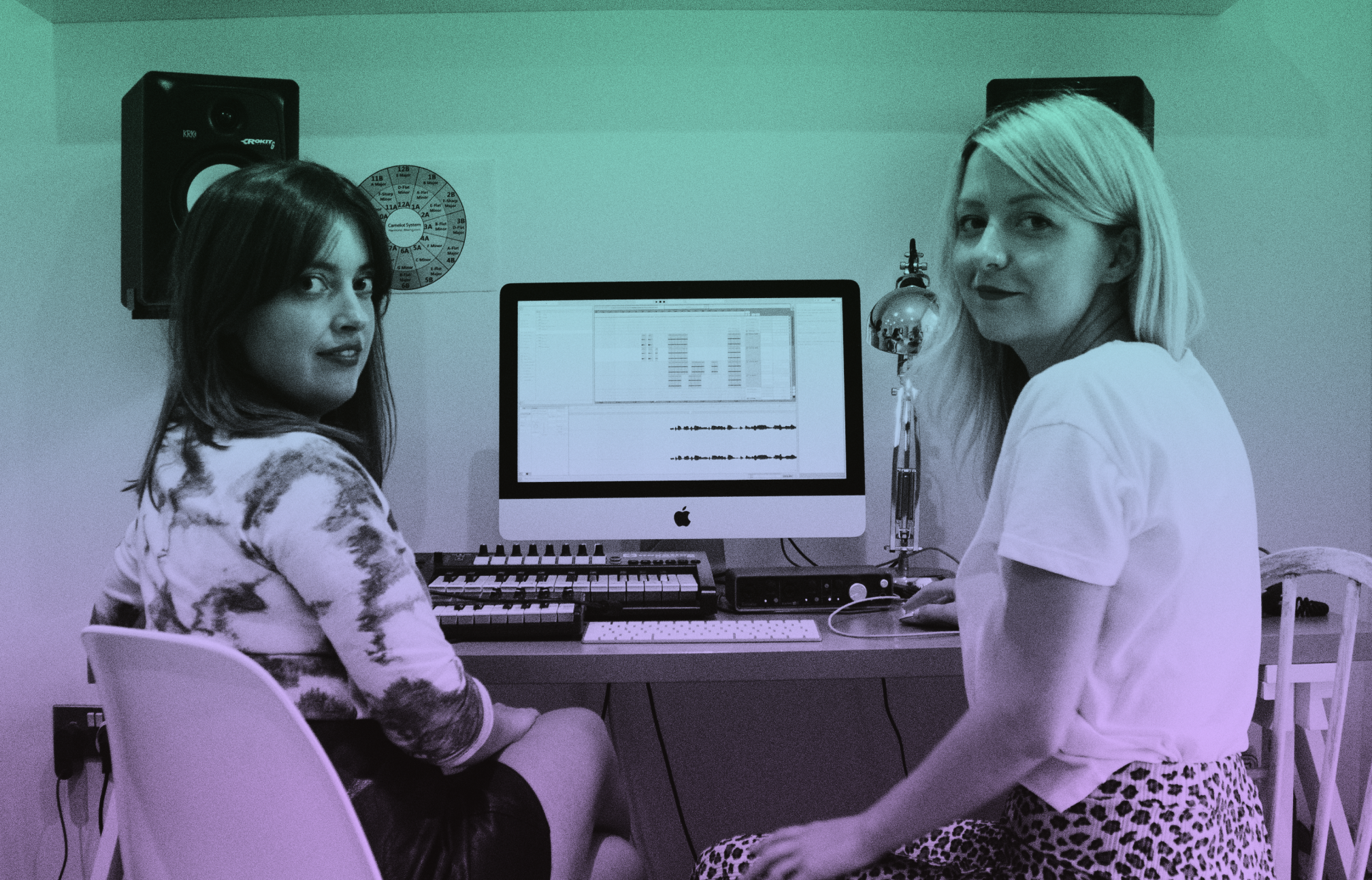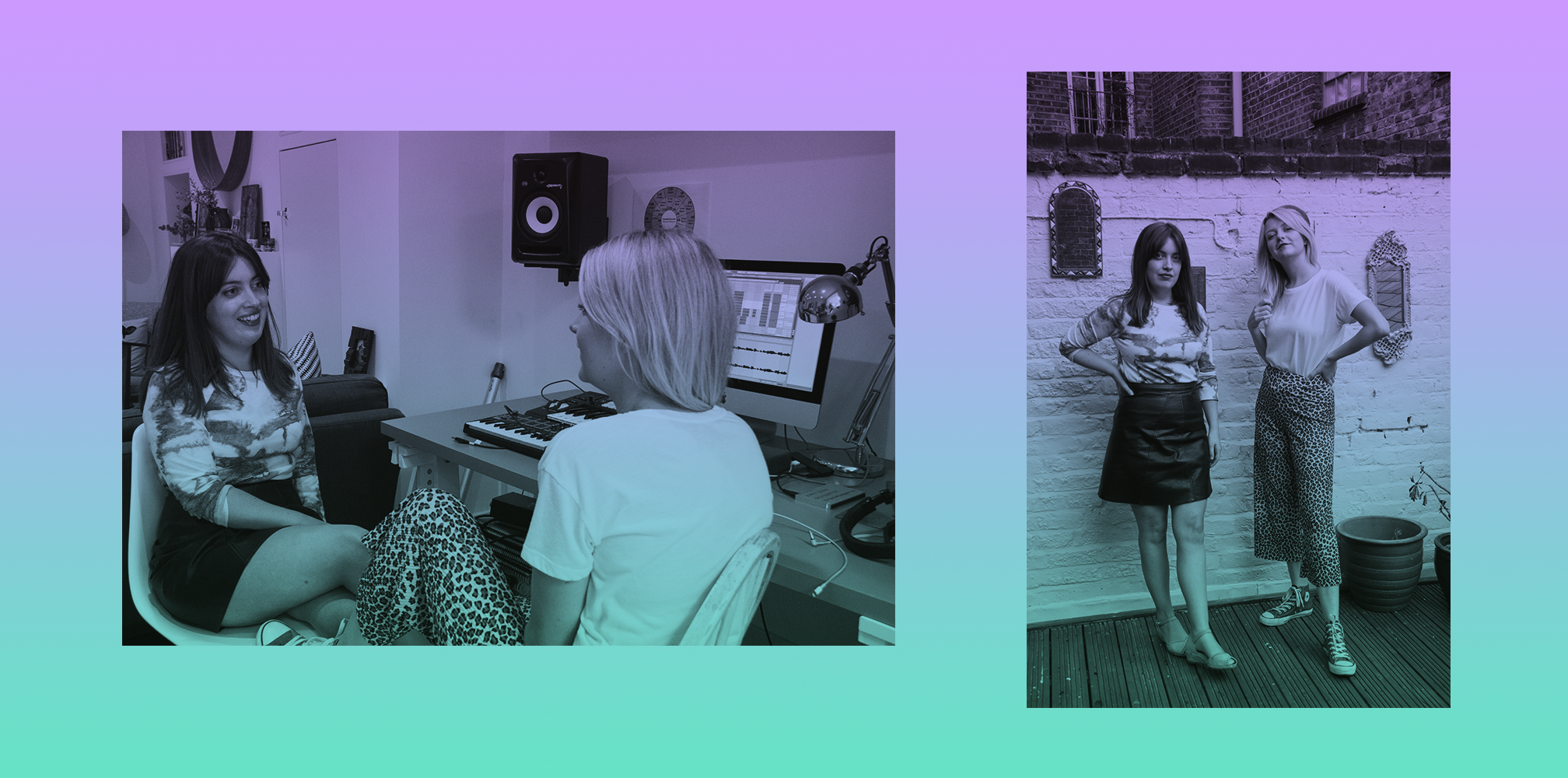 Features
Features
Meet BINKS, the artist whose career was launched by the PRODUCERGIRLS workshop
BINKS took part in PRODUCERGIRLS then quit her job and never looked back
Launched in 2016, PRODUCERGIRLS is the brainchild of producer and DJ, E.M.M.A., working alongside fellow artists Ikonika, Dexplicit, P Jam and Nightwave. In the two years since, the PRODUCERGIRLS team has held classes in various cities around the UK, connecting with and tutoring over 120 eager new producers.
“It’s very much D.I.Y”, E.M.M.A. says. “Just a proactive initiative to take away all the barriers that one might have to learning production such as not knowing anyone who can show you, confidence issues or money issues.”
Below, we catch up with E.M.M.A. and workshop graduate BINKS, who took part in the first PRODUCERGIRLS back in February 2016. From then on, BINKS has quit her job of six years as a business consultant, completed a diploma in Sound Engineering and Music Production at PointBlank and currently heads up sponsorship for Dimensions and Outlook Festivals alongside Johnny Scratchley. She is also a successful DJ, recently playing at Soundwave Festival and looking forward to a set at Dimensions. She’s releasing an EP in March, running parties with Eliza Rose and Faro and also The Sound Studio. Next on her to-do list, she tells me, is a slot on the radio.
“We created a monster!” E.M.M.A. jokes.

How is a beginners workshop structured? Do people need a prior knowledge of making music or music theory?
E.M.M.A.: No, not at all. I think the way that we structure it is the bare basic essentials of building a tune from an initial concept to an arranged version. A lot of producers out there don’t have musical training, and don’t have music theory training. And also, the technical side of things can be quite anxiety inducing if you have no idea, and we aim the workshop at those people who can’t get across that first hurdle. Because to be honest, if you’ve got across that first hurdle, you’re half the way there. And chances are that you don’t need encouragement as much as those who don’t.
BINKS: It’s like reducing the barriers to entry, whether those barriers are music theory or technology – if you have a curiosity but you haven’t actually ever tried, I think the workshop is there to remove those. So it’s not aiming at any particular experience.
E.M.M.A.: We can also debunk it and say, it’s actually not that difficult at all, if you have creative ideas. We can show you the easiest way to put them down. And show you the basic rules of production, while also saying you can rip up the rulebook. You can do it your own way. I think that another thing people think is that it’s like a science, that there’s only one way of doing things. If you open a music production program, look at a project file to compare it to someone else’s who uses the same software, they’d use it in a completely different way. There’s more than one way of doing things.
BINKS, why did you do the PRODUCERGIRLS workshop?
BINKS: That’s a really good question. I was a business consultant for six years, successful, but miserable. When I was younger I did seven singing grades - I was quite musical. I’ve always really been interested in the electronic music scene, spending all of my spare time and money on it, but I felt like I wasn’t allowed to enter into it – that it wasn’t for me because I was in this corporate job. About six months before, from the support and encouragement of my best friend Maxwilliam Music, who plays keys for S.G. Lewis, I bought a mini Akai keyboard, Logic and my monitors, and I was sat at home for six months trying, but working full-time and whatever. Then my friend Mike sent me a Whatsapp about PRODUCERGIRLS, and I thought “Well that would be good…”
And E.M.M.A., what pushed you to start the workshop series?
E.M.M.A: I had a radio show, and I noticed that a lot of the womxn I was seeing there were writing up track-lists, and I was thinking “there’s a lot of people here who would make excellent producers”, like creative female-identifying people, and I didn’t know if they’d even thought about it. So I thought it would be a good place to start. Then it just snowballed really, and we had issues getting a space for it, so that’s why I did the Kickstarter – to remove any dependency on other organisations. So it’s a self-living, not-for-profit organisation now, which means we’ve been able to take it outside of London. And I think that’s a cool thing, because it’s always like “Oh, look at this cool free workshop in London”, and that’s privileged in itself. We’ve been to Brighton, Bristol, Glasgow – Nightwave runs it in Glasgow repeatedly – and next up is Liverpool. We aim to collaborate with local likeminded producers and initiatives, for example working alongside INTERVENTION (run by Ifeoluwa) in Bristol.

Is it just beginners workshops that you run?
BINKS: You’re part of the Facebook group after. And it is actually active. People share a track, or like a tune. There’s quite a few people in there now!
E.M.M.A.: Yeah I think in total we have about 100-120 people in there now. And it is purely for production tips and sharing knowledge. What’s striking about what we’re seeing to happen since - BINKS being an example - is the change from one way of life to another.
Yes, BINKS you recently quit your job and did a music degree - tell us a bit more about that journey.
I’ve had to balance it a bit… So I went to the workshop, I did quit my job actually and applied to Point Blank soon after. I was there for two years doing everything. Sound engineering, music production, live sound, mastering, mixing… everything! I just finished there in April, so that’s amazing. That’s been a big journey actually, huge. Now i’m working for these festivals, which is amazing, but I am also really looking forward to getting back in the studio in the autumn.
And what advice would you give to those looking to get into music production and the music industry?
BINKS: DO IT. Don’t think for one second, just do it. Just take action. I started in a corporate job not thinking I could get anywhere. I also suffer quite heavily with anxiety, so have to really push myself into this way of action over thinking. Now I’ve made every progressive step, I work for two really big music festivals, I’ve got a diploma in Music Production and Sound Engineering from Point Blank, I DJ at festivals… but the thing is, I can’t believe where I’ve got to! And at the time it’s daunting, quite lonely and you don’t understand the language or terminology, but the more time you’re in it and the more time you speak to people, it’s amazing what builds. I’ve made some amazing connections and friends from PointBlank tutors and peers and also from my job and have some very supportive people around me. I would also like to specifically call out Johnny Scratchley from Outlook and Dimensions. He has been an incredible support to me, we are really great friends and he believes in me and everyone needs that. Oh and my Mum, big up Subo! Seriously though, if someone is reading this and has any questions, hit me up on Instagram @binksmusic, I promise I’ll get back to you!
E.M.M.A.: One of the questions I ask in the application is “What’s stopped you learning until now?” And an overriding issue – and it always makes me quite emotional when I’m at the last minute going through the applications the choose people (it’s impossible to cut it down but we have to because of demand) is the confidence issue. Give yourself time, because you might make ambient, then grime, you might be in a different mood today and want to express that. Have confidence in your own ears from day one. It’s very subjective.
For somebody that maybe can’t make it down to a workshop in the immediate future, and maybe doesn’t have any mates that could show them, what can they do to get started?
E.M.M.A.: The one thing I say to people who don’t make it onto the course, is that Ableton have an education website which is build-a-beat in your browser. And it talks you through the very basic principles of constructing an electronic track, and you can import that into the trial version of Ableton. They have walk-through help guides as well. You could also for example get a free sequencer like Audacity, and get a mic.
BINKS: I would say as well if you’re starting and you don’t know the kit, start small. Just buy a midi keyboard, and once you start triggering sounds with your hands, that might start to set things in motion. I spend a lot of time, now, listening to music. And I know it’s a really boring, simple thing to say, but the inspiration that you get from all the different genres that you like, and being interested in how they made “that sound”. Starting with an idea is a very important thing. And I still write myself briefs to this day. Oh and don’t look left and right at anyone else. It is a very competitive and fast-paced industry, so just have a goal and make steps towards it. You are only ever in combat with the older version of you and no one else.
Quite simply, why is PRODUCERGIRLS important?
E.M.M.A.: I think all music should be political, and if there’s an issue within your scene, then the grassroots people should pull together to try and change it, and in this case try and democratise access to music production for womxn. And I think that’s what it does. It takes it back from the elite.
BINKS: I think it’s important because it’s the first step in a bigger journey. It makes you think, and see, for the first time, that other people want to do this too. It just builds your confidence a little bit. Emma Is doing an amazing job and it’s funded all through herself and through Kickstarter… but it just gives you that first step. You do have to take it yourself by the horns. It’s to give you the tools. Also, E.M.M.A. and I are really great friends now, so the social and supportive side is also really crucial.
E.M.M.A.: As Kerry said. The Kickstarter funding is coming to an end now though, so I don’t know what’s going to happen. It’s important it remains free to attend. If anyone has got any ideas then that would be helpful. I think when you’re struggling to make a living anyway, you can’t make it a full-time thing. Even though I would love to ideally.


